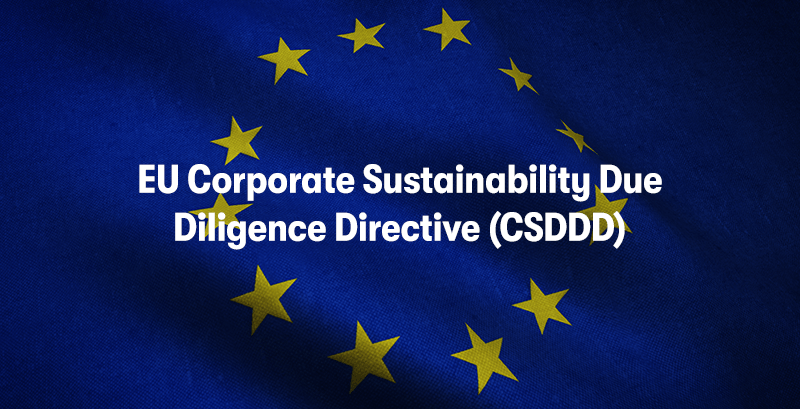
Elena Perez Celis
Dec 13, 2024
The European Union’s Corporate Sustainability Due Diligence Directive (CSDDD) has set new expectations for companies to take responsibility for their impact on people and the environment, not just within their own operations but across their entire supply chains. While the directive aims to promote sustainability, it has significant implications for Africa, where many businesses play a critical role in supplying global markets.
At ADD™, we recognise the challenges and opportunities this directive brings to African businesses. Our Due Diligence Dashboard is here to support both African companies and their European partners in meeting these new demands fairly and effectively.
According to Wageningen University, the CSDDD could place unintended burdens on small and medium-sized enterprises (SMEs) in Africa. Large European companies may require their suppliers to prove compliance with human rights and environmental standards. For many African businesses, this might mean demonstrating that their operations are free of risks such as poor working conditions, biodiversity loss, or high carbon emissions.
However, meeting these requirements without support can be costly and complicated for smaller businesses, potentially threatening their livelihoods.
The directive’s purpose is clear: large companies are responsible for addressing risks across their supply chains. This means they must work with their African partners to tackle challenges rather than simply shifting the responsibility. For example, if an African supplier faces environmental or social risks, the European company should collaborate with them to find solutions, such as adopting more sustainable practices or improving working conditions.
At ADD™, we believe in empowering African businesses. Our tools and expertise enable companies to work together transparently, ensuring compliance without placing an unfair burden on suppliers.
While the directive brings challenges, it also opens doors for African businesses to strengthen their global partnerships. By embracing sustainability, African suppliers can position themselves as trusted and competitive partners in international markets.
ADD™ supports this transition by helping businesses in Africa assess risks, improve transparency, and adopt best practices. Our platform simplifies the process, making it easier for African businesses to meet the new requirements and build stronger, more sustainable relationships with their European clients.
Wageningen University’s findings highlight the importance of fair collaboration between European companies and their African partners. The directive must not become a tool for shifting responsibility but rather a means of fostering cooperation and shared growth.
At ADD™, we are committed to supporting businesses in Africa as they navigate these changes. By working together, we can ensure compliance with the directive while promoting sustainability and fairness across supply chains.
Are you ready to take the next step? Contact ADD™ today to see how we can help your business succeed under the new directive.
☗The Pitfalls of Quick Fixes: A Cautionary Tale from African Business
☗Introducing Africa's first universal verification Platform
☗Verify Anyone, Anywhere in Africa with ADD™
☗ADD™: Ensuring Security for African Businesses in 2025
☗2024 Africa Investment Forum: $29.5bn in New Commitments for African Projects
☗Digital Education: A Key to Africa’s Economic Growth
☗The Complex Path for Africa’s Cobalt Industry Amid Growing EV Demand
☗What Does Trump's Win Mean for Africa?
☗How ADD™ is Transforming KYC/KYB Compliance Across Africa
☗Botswana's New Mining Law Brings Challenges for Investors
Subscribe to receive our latest posts & updates via email.